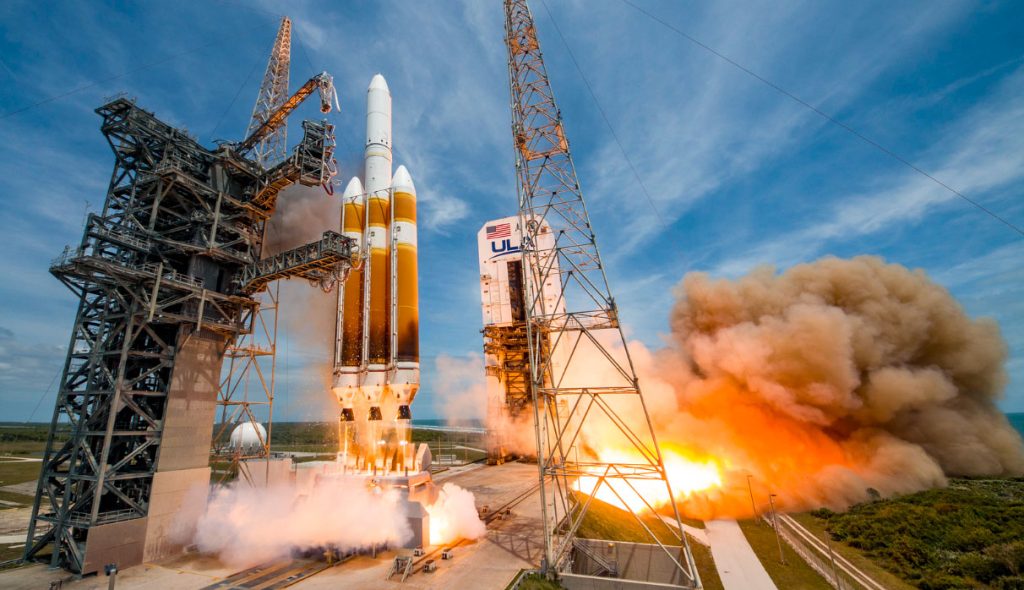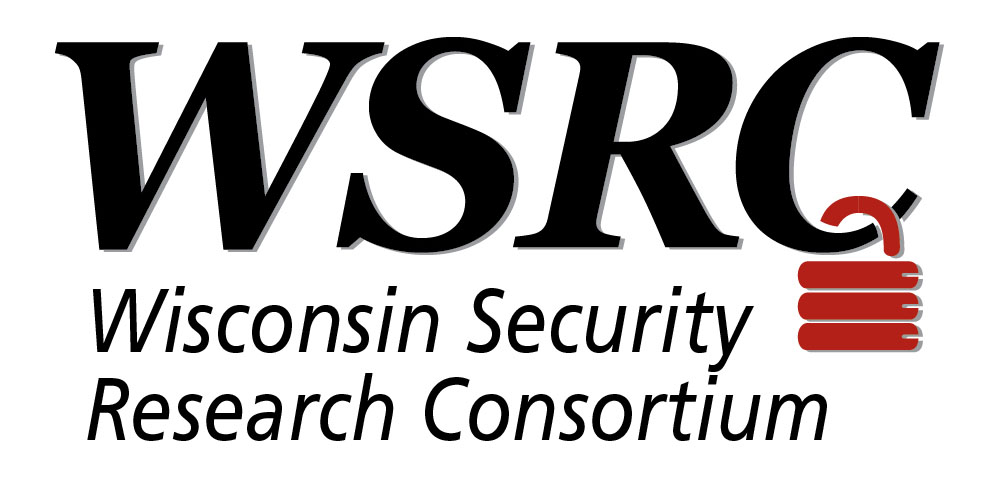13 Mar UW–Madison hosts National Reconnaissance Office visit
The University of Wisconsin–Madison and Wisconsin Security Research Consortium hosted research leaders from the National Reconnaissance Office (NRO) on March 12, 2024. NRO develops, acquires, launches, and operates space-based assets and ground systems. NRO systems address the nation’s toughest intelligence challenges, providing information and perspectives unavailable from other sources. These platforms are also used in support of natural disasters, climate intelligence, wildfires, mapping, and research purposes.

A United Launch Alliance Delta IV Heavy rocket carrying the classified NROL-70 spy satellite for the U.S. National Reconnaissance Office launches toward space from Space Launch Complex-37 at Cape Canaveral Space Force Station, California on April 9, 2024. (Image credit: United Launch Alliance)
Researchers from diverse parts of UW–Madison met to learn about NRO research priorities, innovation efforts such as the Director’s Innovation Initiative (DII) for cutting edge technologies and high payoff concepts, internship and research opportunities for students, and to discuss their own research areas. Most NRO academic research is unclassified and unrestricted, and able to be published in scientific journals or presented at conferences.
UW–Madison researchers will work with NRO to understand how their research can improve existing NRO capabilities, adapt existing techniques and technologies to NRO’s mission, or develop entirely new technologies, processes, or tools to meet NRO needs.
“This is a fantastic opportunity to showcase the world-class research and innovation at UW–Madison, and to contribute to solutions to NRO’s very unique challenges,” said Dave Schroeder, WSRC Research Director. “We look forward to engaging with NRO on research, as well as providing exciting opportunities for UW–Madison students.”
The Wisconsin Security Research Consortium is a 501(c)(3) non-profit corporation affiliated with the University of Wisconsin–Madison that enhances Wisconsin’s position to attract and retain research and development grants from federal government agencies for the purpose of conducting sensitive academic and business research and related development work. This research contributes to the health, safety, and security of the people of Wisconsin and citizens of the United States, regardless of where they live.




